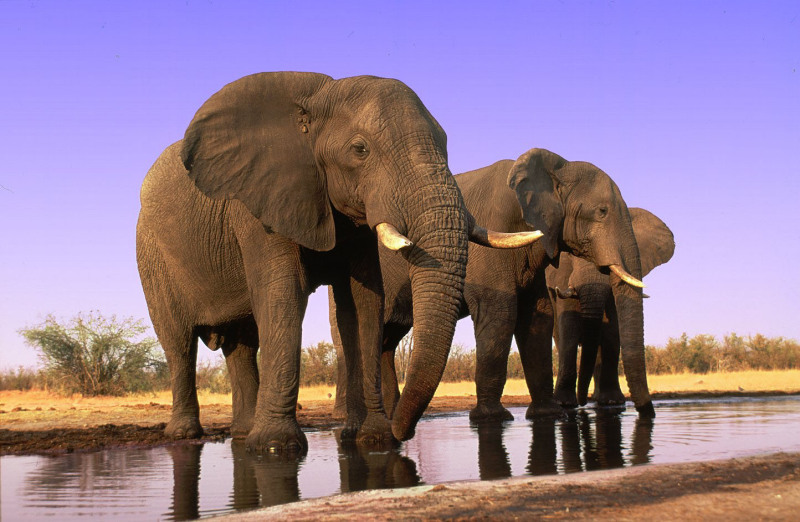Zimbabwe has announced plans to cull 200 elephants due to an unprecedented drought causing food shortages and increasing human-wildlife conflict. The decision, made by the Zimbabwe Parks and Wildlife Authority (ZimParks), aims to address the country’s growing elephant population, which officials say has surpassed sustainable levels.
The country’s Environment Minister, Sithembiso Nyoni, stated that Zimbabwe has “more elephants than it needed.” In a parliamentary address on Wednesday, Nyoni noted that the government had instructed ZimParks to begin the culling process. The cull is set to occur in areas where elephants have clashed with humans, including Hwange, which hosts Zimbabwe’s largest natural reserve.
ZimParks’ Director General, Fulton Mangwanya, confirmed that Hwange is a focal point for the culling operation. This region is home to 65,000 elephants, significantly exceeding its capacity. Zimbabwe last conducted a cull of elephants in 1988, making this the first such action in over three decades.
Nyoni explained the government’s approach, which includes discussions with local communities and organisations. “We are having a discussion with ZimParks and some communities to do like what Namibia has done, so that we can cull the elephants and mobilise the women to maybe dry the meat, package it, and ensure that it gets to some communities that need the protein,” she told Voice of America.
Zimbabwe is home to approximately 100,000 elephants, making it the second-largest population globally after Botswana. The culling initiative is partially motivated by the need to alleviate food shortages caused by the ongoing drought, which has also affected neighbouring Namibia. Earlier this month, Namibia reported the planned culling of more than 700 animals, including 83 elephants, in response to its worst drought in decades.
The drought has led several southern African countries, including Zimbabwe and Namibia, to declare states of emergency. According to the United Nations, about 42% of Zimbabweans live in poverty, and authorities estimate that around 6 million people will require food assistance during the lean season from November to March.
However, the move to cull elephants has faced criticism, especially from conservationists and tourism stakeholders. Elephants are a major draw for tourists, and some argue that the cull could have negative implications for Zimbabwe’s tourism industry. Farai Maguwu, Director of the non-profit Centre for Natural Resource Governance, criticised the decision, stating, “Government must have more sustainable eco-friendly methods to dealing with drought without affecting tourism.”
Maguwu also expressed concerns about the potential impact on Zimbabwe’s reputation as a custodian of natural resources. “They risk turning away tourists on ethical grounds. The elephants are more profitable alive than dead,” he said. “We have shown that we are poor custodians of natural resources and our appetite for ill-gotten wealth knows no bounds, so this must be stopped because it is unethical.”
On the other hand, some conservationists argue that culling is a necessary measure to protect ecosystems from the overpopulation of elephants. Chris Brown, a conservationist and CEO of the Namibian Chamber of Environment, supports the decision, emphasising the environmental impact of an uncontrolled elephant population. “They really damage ecosystems and habitats, and they have a huge impact on other species which are less iconic,” Brown stated.
Source: eutoday







